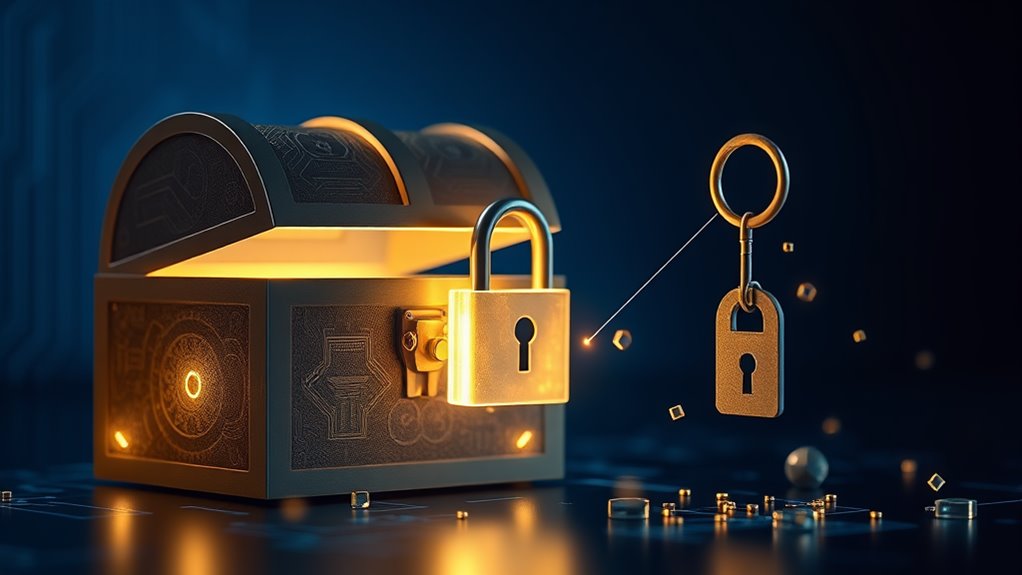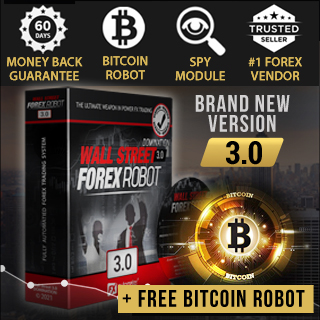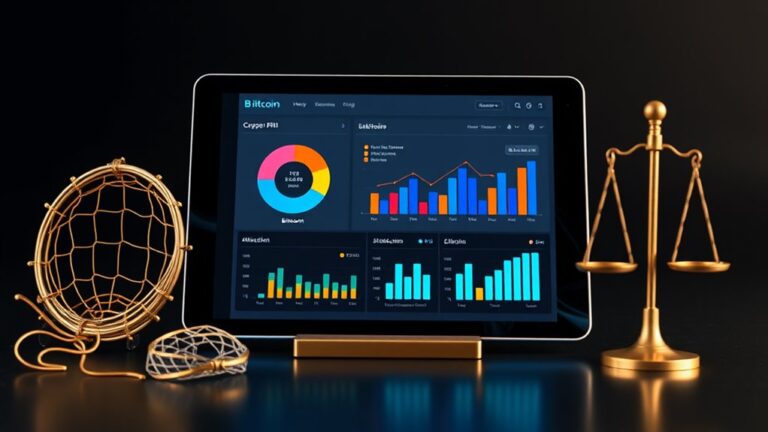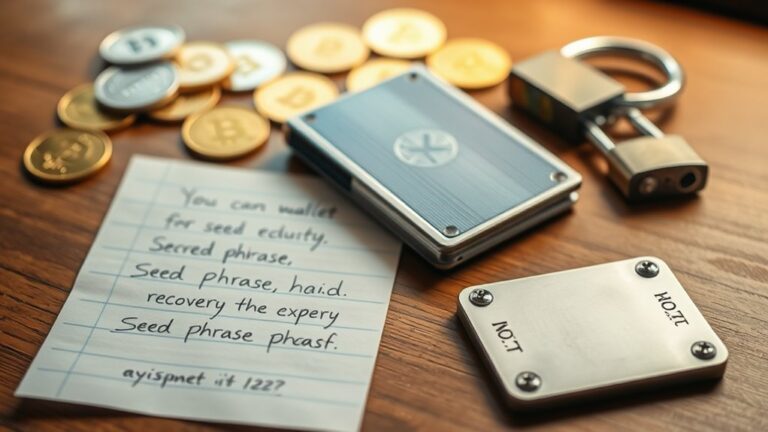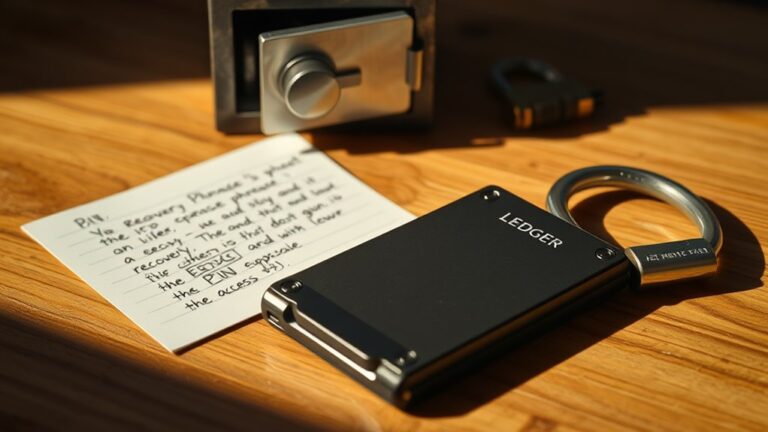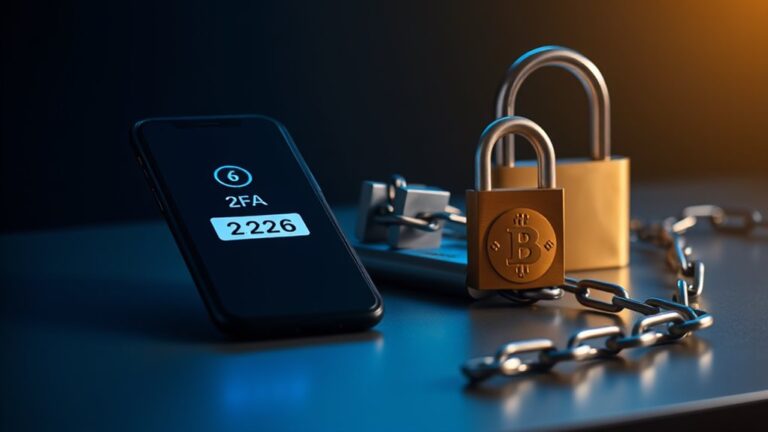Zero-Knowledge Proofs Explained
Note: This post may contain affiliate links, and we may earn a commission (with No additional cost for you) if you purchase via our link. See our disclosure for more info. The gold and crypto world is constantly changing. This is not financial, investment, legal, or professional advice. So, please verify the information on the gold and cryptocurrency provider’s websites.
Zero-knowledge proofs are a fancy way of proving you know a secret without giving it away. Think of it like saying, “I know where the treasure is, but I'm not showing you the map.” There are two flavors: interactive ones, which are like a back-and-forth quiz, and non-interactive ones, which are simpler – just one message. They're great for keeping things private, but don't let a dishonest person fool you. Stick around; there's more to uncover about their magic!
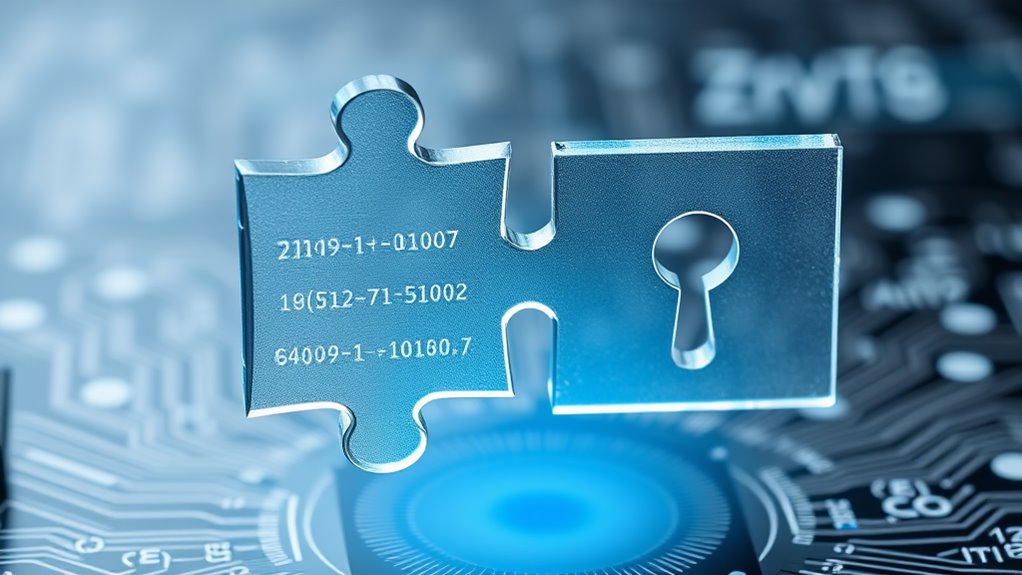
Zero-knowledge proofs might sound like something out of a sci-fi novel, but they're actually a game-changer in the world of cryptography. Imagine being able to prove you know a secret without actually revealing it. That's the magic of zero-knowledge proofs. They allow a prover to convince a verifier that a statement is true, without spilling any extra beans. It's like saying, “Trust me, I know where the treasure is, but I won't show you the map.” Pretty neat, huh?
Zero-knowledge proofs let you prove your secrets without revealing them—like knowing where the treasure is without showing the map.
There are two main flavors of these proofs: interactive and non-interactive. Interactive ones involve a back-and-forth message exchange. Think of it like a game of 20 Questions, but with a twist. Non-interactive proofs? Just one message. Simple, direct. Both types bring some seriously cool properties to the table – completeness, soundness, and, of course, the elusive zero-knowledge property. Perfect Zero-Knowledge proofs ensure that if the statement is true, the verifier learns nothing beyond that fact. In fact, key properties such as completeness and soundness make zero-knowledge proofs robust against deception.
The historical journey is interesting too. These concepts were first kicked around in the 1980s by some brainy folks at MIT – Goldwasser, Micali, and Rackoff. Their foundational paper? “The Knowledge Complexity of Interactive Proof Systems.” Catchy title, right? At first, it was all theory, but now? They're rocking the Web3 and blockchain world.
Speaking of which, zero-knowledge proofs are a big deal for privacy-preserving smart contracts on public blockchains. They help keep sensitive data safe from prying eyes. Much like how self-executing agreements enable automation and eliminate intermediaries in blockchain transactions, zero-knowledge proofs add an extra layer of privacy protection. So, instead of shouting your secrets from the rooftops, you can wave a magic wand and prove your knowledge without exposing yourself.
It's not all rainbows and butterflies, though. There's a probabilistic nature to these proofs. A dishonest prover might try to fool an honest verifier. But that's where the soundness property comes in, making it tough to pull a fast one.
Frequently Asked Questions
What Are the Real-World Applications of Zero-Knowledge Proofs?
Zero-knowledge proofs? They're like magic for data privacy.
Imagine validating a bank transaction without showing the dollar amount. Or proving you're eligible to vote without sharing your name. It's all about keeping secrets while still getting stuff done.
Companies can verify compliance without spilling sensitive details. And let's not forget those password-less logins—goodbye, forgotten passwords!
It's all clever tech, making life a bit easier and a whole lot more private.
How Do Zero-Knowledge Proofs Enhance Privacy and Security?
Privacy and security? Yeah, they're a big deal.
Zero-knowledge proofs step in like a superhero, letting people prove things without spilling their guts. Imagine showing you're old enough to buy a drink without sharing your birthdate—genius, right?
They keep financial info under wraps while still getting the job done. It's like a magic trick for data. No need for a spotlight on your secrets. Just proof, no exposure. Simple as that.
Can Zero-Knowledge Proofs Be Used in Blockchain Technology?
Absolutely, zero-knowledge proofs can totally rock blockchain technology. They keep transactions private, hiding all the juicy details.
Imagine sending money without anyone knowing who you are or how much you sent. Sounds cool, right? Plus, they help verify identities without spilling personal info. They're like a magic cloak for sensitive data!
Privacy and scalability? Check. It's no wonder projects like Zcash and Tornado Cash are jumping on this bandwagon. Privacy is the new black!
What Are the Limitations of Zero-Knowledge Proofs?
Zero-knowledge proofs have some serious limitations.
First off, they can be computationally heavy. Think slow and energy-draining.
Integration? A nightmare—modifying protocols can clash with existing systems.
Then there's trust. Those trusted setup phases? Just a recipe for disaster if something goes wrong.
And let's not forget regulatory headaches. Privacy doesn't always sit well with rules like AML/KYC.
Plus, some proofs might not even work for all problems. Fun, right?
How Do Zero-Knowledge Proofs Differ From Traditional Cryptographic Methods?
Traditional cryptographic methods? They demand data sharing for verification. Not great, right?
Enter zero-knowledge proofs. They let you verify without spilling any secrets.
Classic methods rely on encryption to hide data but don't prove knowledge. ZKPs? They flaunt proving knowledge without revealing anything.
Encryption algorithms like AES and RSA are old news. ZKPs use fancy math, like elliptic curves.
They're all about verification, while traditional methods? Just protecting data. Yawn.

